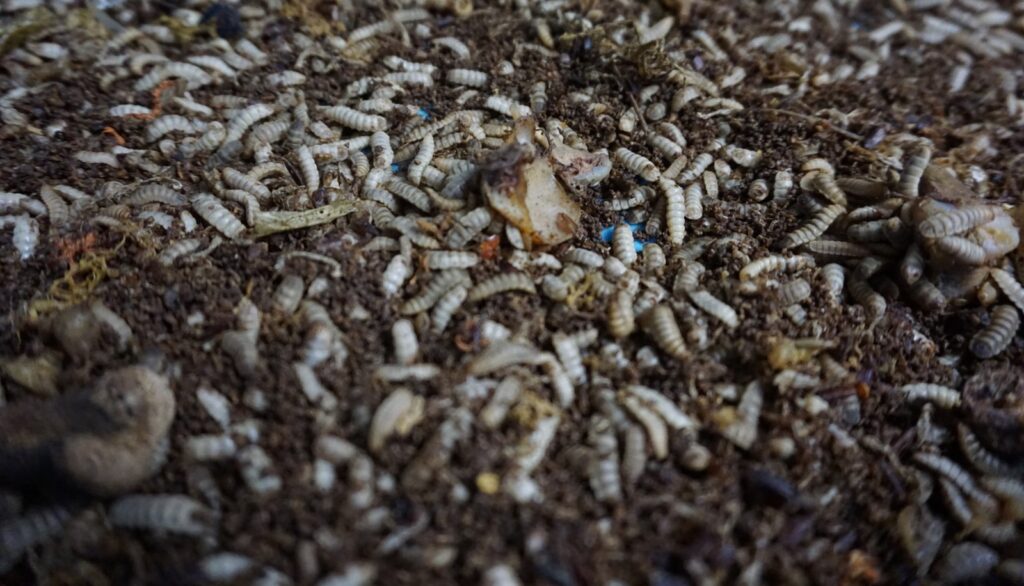Smart food waste recycling system using black soldier fly larvae

A significant proportion of municipal food waste in Singapore is presently incinerated in waste-to-energy plants with the incineration waste buried in the landfill at Pulau Semakau. This approach is unsustainable as incineration contributes to Singapore’s greenhouse gas emissions, and at the current waste disposal rate the lifespan of the landfill is projected to last only until 2035.
To overcome these challenges, many alternative solutions are currently being explored including the recycling of municipal food waste using black soldier fly larvae. The larvae feeds on the food waste, after which they can be harvested and processed into feed for livestock. Additionally, the residues arising from the process is a source of potent organic fertiliser. However, current studies on this topic are mostly limited to bioconversion at lab scale. Therefore, to achieve a more scalable solution, we designed a smart reactor system that is modular, easy to deploy, easy to operate and maintain, and has optimised conditions for bioconversion of municipal food waste using black soldier fly larvae.

Project Team
Students:
- Ashley Chua Jun Hong (Electrical Engineering, Class of 2025)
- Lee Wai Seng (Electrical Engineering, Class of 2025)
- Lim Ying Min, Alicia (Mechanical Engineering, Class of 2024)
- Man Chun Hang (Electrical Engineering, Class of 2025)
- Mok Jia Luo (Electrical Engineering, Class of 2024)
Supervisors:
- Dr Elliot Law (elliot.law@nus.edu.sg)
- Ms Wong Kah Wei (clbwkw@nus.edu.sg)
- Mr Adrian Fuhrmann (adrian.fuhrmann@sec.ethz.ch)

